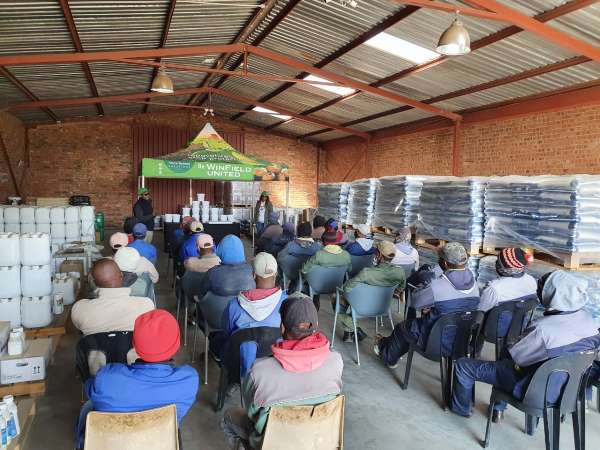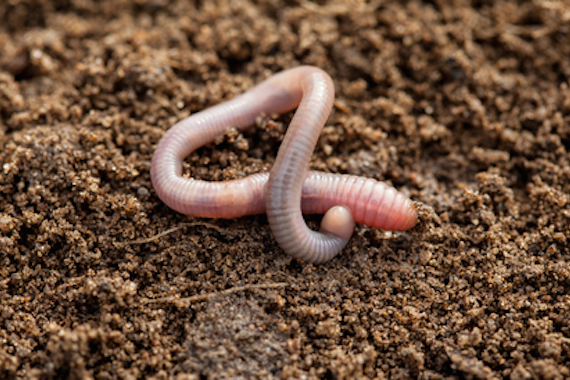As a concept, stewardship has strong spiritual roots. However, one does not have to be religious to embrace the principle that we have to keep the planet and its resources safe on behalf of future generations. We are not the owners of all around us; we are simply the cultivators, managers and guardians.
In the context of agriculture, stewardship is an extremely practical matter relevant to every person, given that the actions of growers and agri-roleplayers have a direct impact on the environment and natural resources – and that determines whether or not we have food on our tables.
The requirement and responsibility to not destroy what we have, consist of three facets as far as agriculture is concerned:
- The fast-growing global population demands the production of more food. The problem is that we do not really have any more uncultivated arable land. On the contrary, urbanisation and development increasingly encroach on existing farms. The result is that more must be done with less.
- The scarcity of natural resources, soil and water in particular, requires responsible and sustainable production. We cannot afford to destroy soil fertility or to pollute or exhaust water sources in the name of production. In the short-term this causes, among others, food safety issues; in the longer term, food security is at stake.
- To address both these challenges, growers rely heavily on crop protection products and technology. Product stewardship is therefore also on agriculture’s agenda: the products and technology at our disposal must be protected so that they can remain usable to help realise optimal yields. The strict regulatory environment has led to an astronomical increase in the costs involved in researching and developing new crop protection molecules. The agri-industry is therefore under tremendous pressure to safeguard and even extend the lifespans of existing products by handling and using them responsibly and according to the guidelines. In so doing we not only address the continued effectiveness of the compounds, but we also limit to the absolute minimum any possible detrimental impact on the environment or the general wellbeing of humans and animals.
InteliGro’s stewardship philosophy is comprehensive, wide-ranging and integrated – and is at the heart of our business model.
We have always been convinced that there is more than one solution to every problem. Hence, we follow an integrated approach to pest and disease management, which is evident in crop solutions that combine chemical and biological options. Examples include the incorporation of biocontrol measures such as micro- and macro-organisms, plant extracts and mass-capture techniques. Biocontrol measures have no adverse impact on the environment and can be used by growers in the production of low- or no-residue produce, which means they are also safe for consumers.
In terms of product stewardship, we believe the answer lies in the empowerment of people. We therefore invest significant resources in the hosting of spray clinics where growers and their employees are trained in the safe handling and effective application of agricultural products.
Effective application drastically reduces the possibility of resistance developing in target pests and largely eliminates negative environmental impacts. It also positively influences the grower’s profitability, given the correlation between product handling and action, and the desired control outcomes.
Spray clinics furthermore focus on the safe handling of agricultural products in order to protect the health of farm employees, as well as the wellbeing of the environment and natural resources. The latter is addressed specifically through training on and practical support for the handling of product waste.
InteliGro’s stewardship approach includes the investment in accredited CropLife collection points at InteliGro depots. Growers and their staff are taught to rinse empty containers three times before handing them in at the collection points from where they can be recycled in a safe and responsible manner. This service not only solves a waste headache; it also facilitates market access for growers who have to comply with strict export regulations.
Stewardship’s focus on future generations is reflected in our InteliGro Kidz programme through which we invest in young people. In cooperation with agricultural high schools in particular, we aim to make a positive difference by exposing learners to opportunities in the broader agri industry, nurturing environmental awareness and encouraging stewardship.
While being highly rewarding, this interaction with the younger generation is also part of our investment in the future and sustainability of agriculture in South Africa, seeing that tomorrow’s growers hold our continued existence in their hands.
Businesses have a responsibility towards their shareholders, investors, employees and other stakeholders to implement their business strategy in a profitable way. The mandate of companies in the agricultural arena is to optimise yield – but never at the expense of people, the environment and animals.
Stewardship in agriculture is a shared responsibility with a role for growers, suppliers, consumers and every other stakeholder, and for it to be visible in our solutions, how we do things is just as important as what we do.









